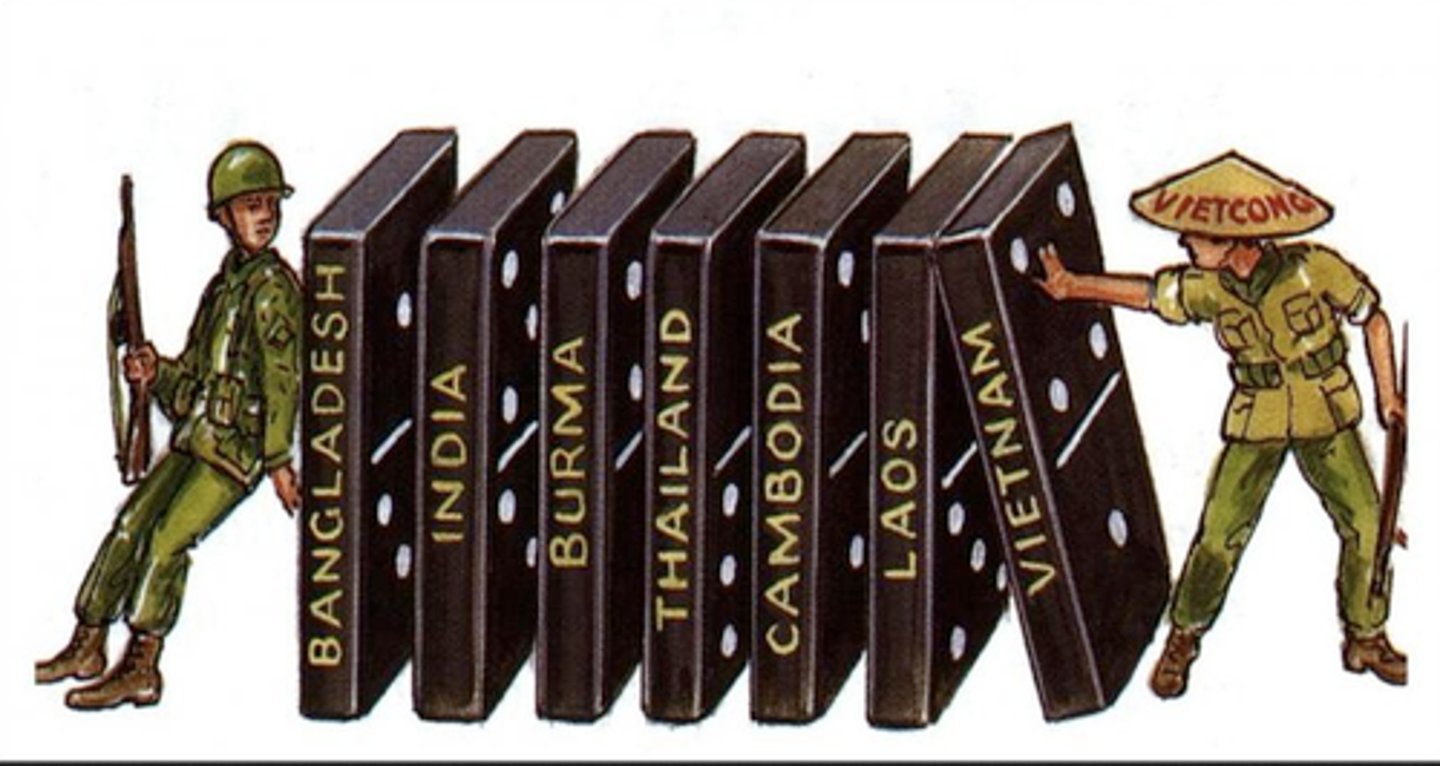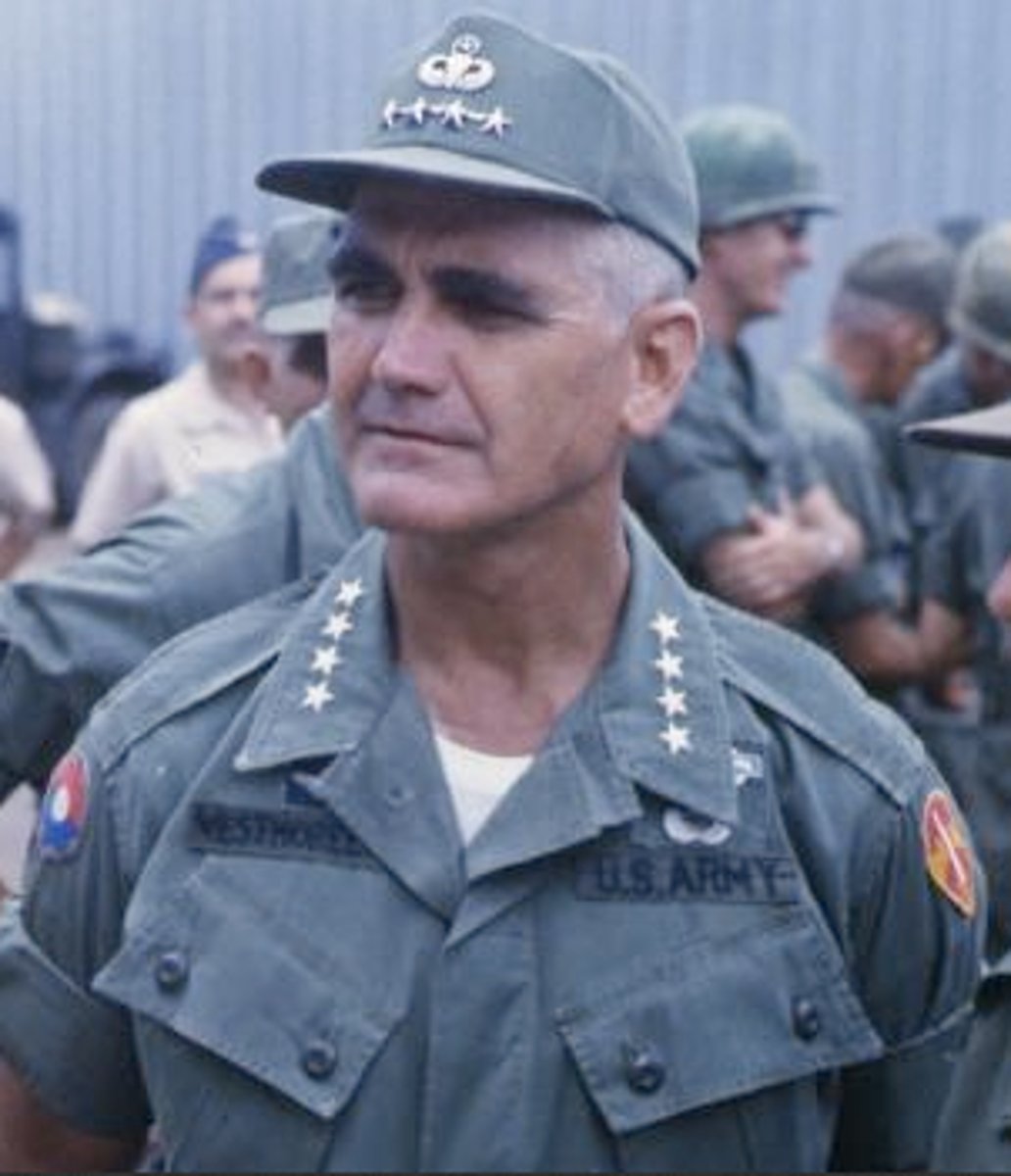Ch. 20 : The Vietnam War
1/19
There's no tags or description
Looks like no tags are added yet.
Name | Mastery | Learn | Test | Matching | Spaced | Call with Kai |
|---|

20 Terms
Ho Chi Minh
(1890-1969) leader of the Communist Party in Indochina after WWII; led Vietnamese against the French, then North Vietnamese against the United States in the Vietnam War
domino theory
the political theory that if one nation comes under Communist control then neighboring nations will also come under Communist control

Vietcong
the guerrilla soldiers of the Communist faction in South Vietnam, also know as the National Liberation Front
Tonkin Gulf Resolution
a resolution adopted by Congress in 1964, giving the president broad powers to wage war in Vietnam
William Westmoreland
American General who commanded American military operations in the Vietnam War at its peak from 1964 to 1968

dove
someone who prefers negotiations to armed conflict in the conduct of foreign relations
hawk
person who advocates immediate firm action, including the use of force, to resolve international crises
Tet Offensive
a massive surprise attack by the Vietcong on South Vietnamese towns and cities in early 1968.
Vietnamization
President Richard Nixons strategy for ending U.S involvement in the vietnam war, involving a gradual withdrawl of American troops and replacement of them with South Vietnamese forces
Containment
After World War II, the U.S. policy of securing the peace by trying to contain communism to keep it from expanding.
Guerilla Warfare
Fighting by small, independent bands using hit-and-run tactics.
Hanoi
Capitol of North Vietnam
Ho Chi Minh Trail
Supply route used to send supplies from North Vietnam to communist fighters in the South.
Draft
The selection of persons for a particular compulsory assignment; a system of selecting persons to serve in the military.
Deferment
The postponement of a person's induction into military service for reasons such as health or occupation.
Lyndon Johnson
President of the U.S. who sent the first American combat soldiers to South Vietnam, eventually escalating troop levels to over 500,000 soldiers.
Richard Nixon
American president who began the process of Vietnamization and withdrew American troops from Vietnam.
John F. Kennedy
American president who sent 16,000 military advisors to South Vietnam
Saigon
capital of South Vietnam
conscientious objector
one who opposes war for moral or religious reasons